You can trust Cyclingnews
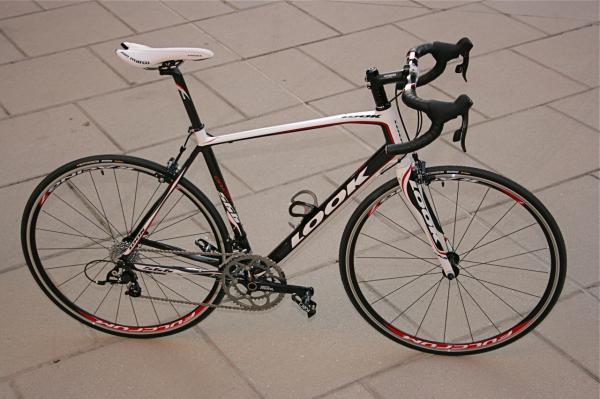
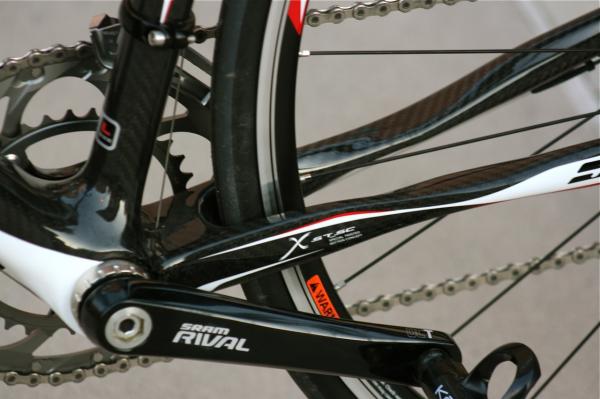
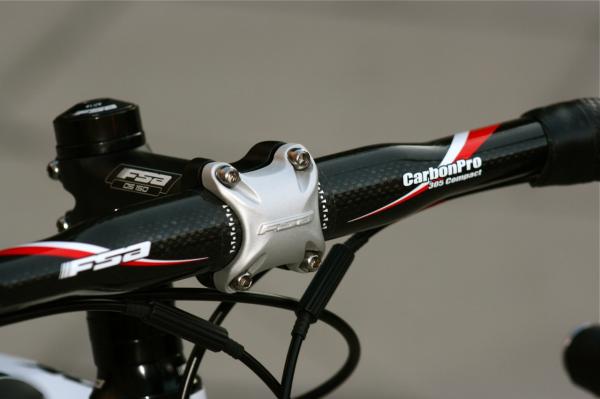
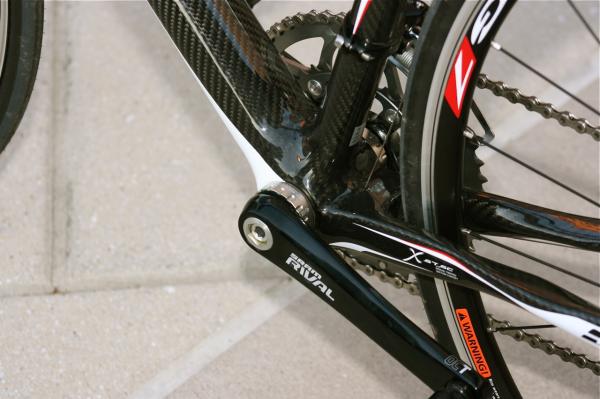
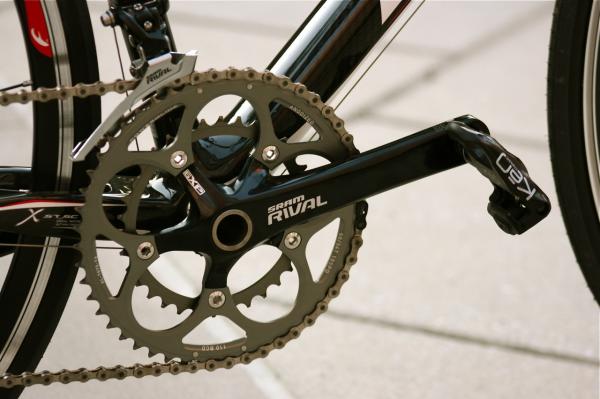
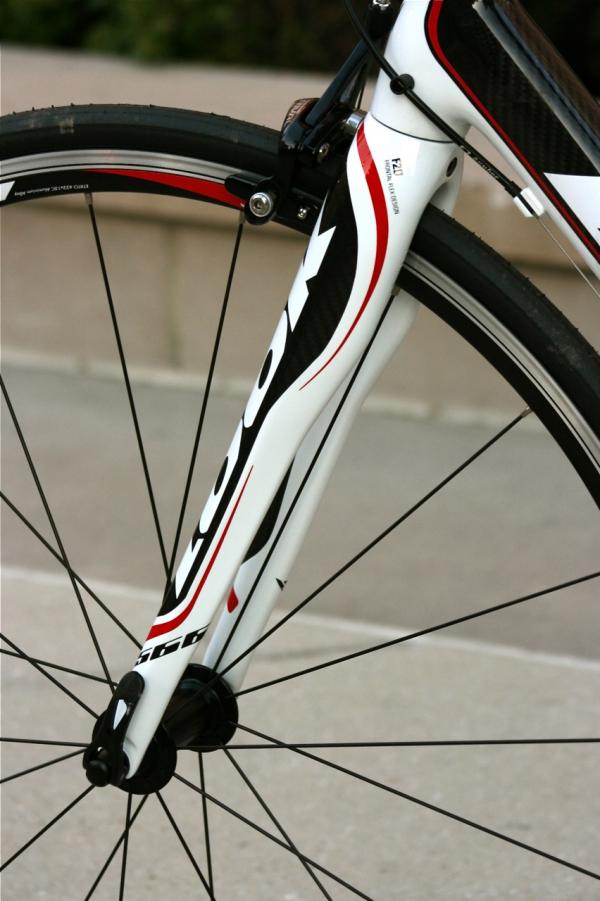
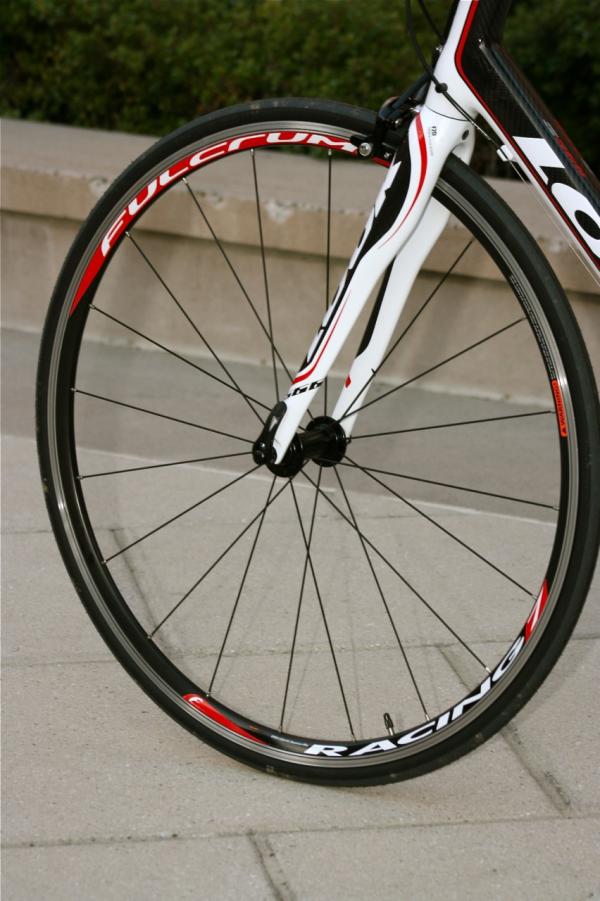
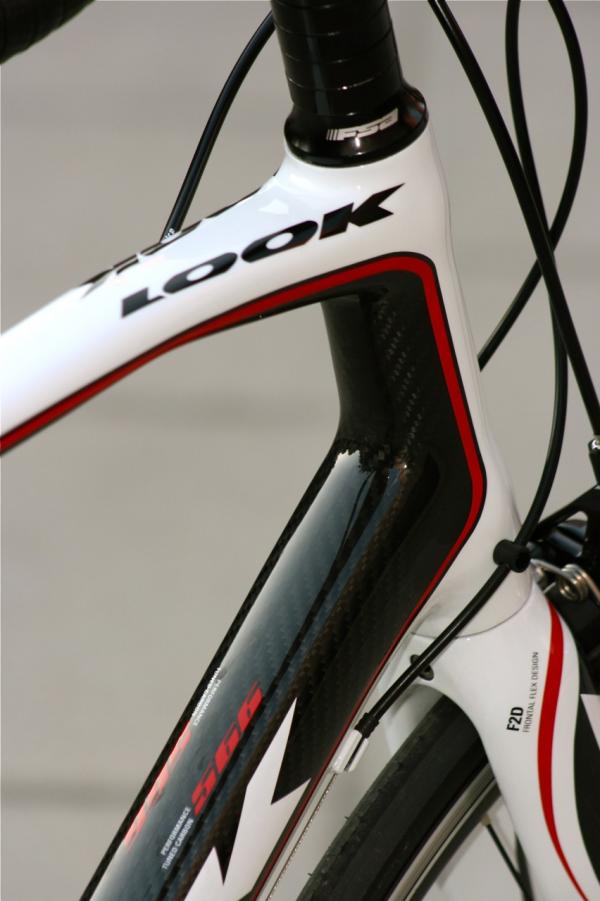
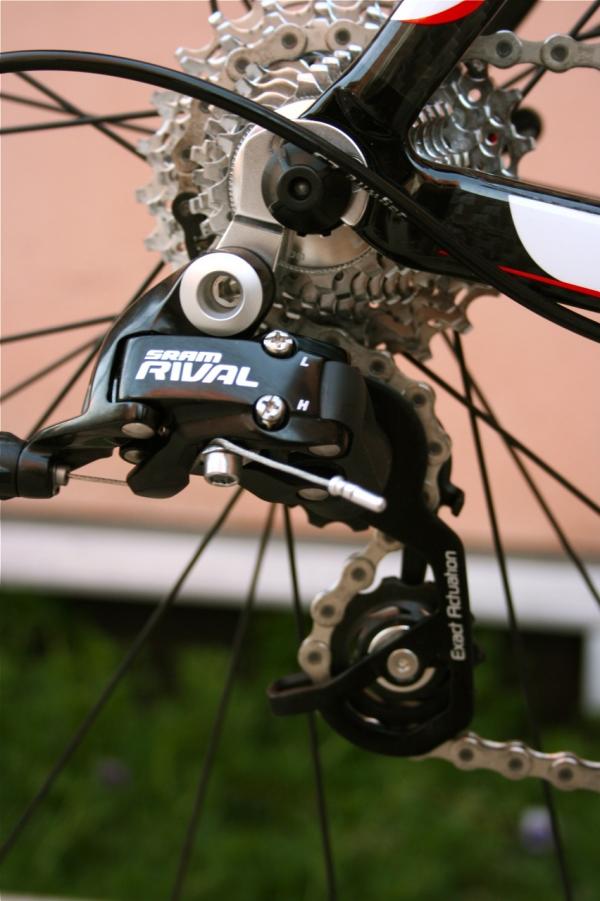
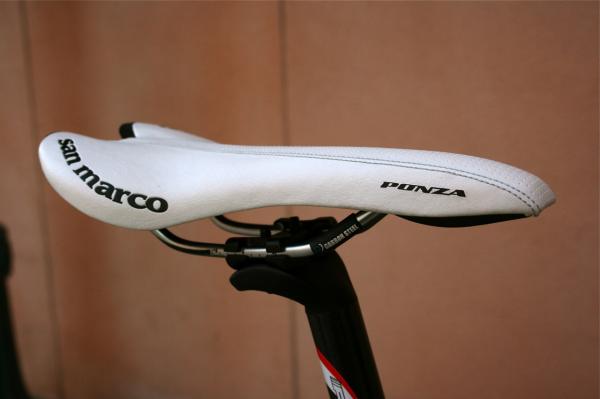
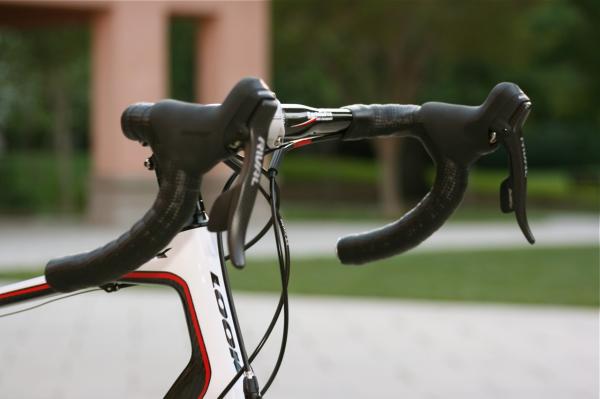
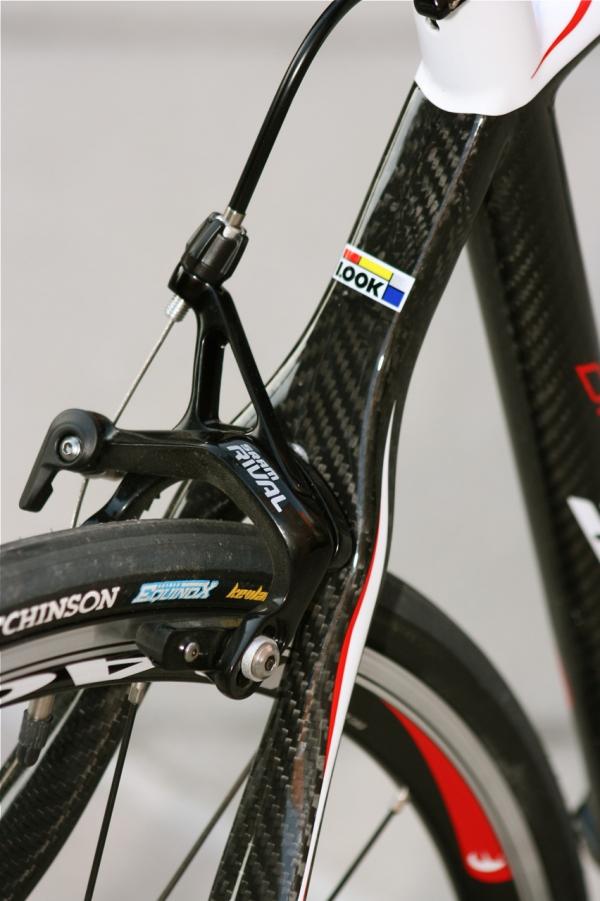
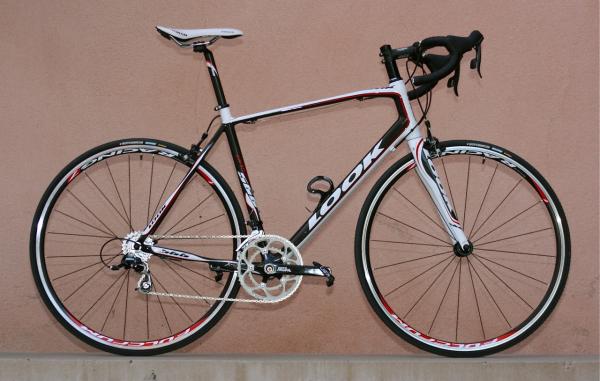
The carbon Look 566 Origin is the French company's first foray into Asian-made complete bikes, and the shorter top tube and slightly longer headtube on this sportive ride make for an interesting – and affordable – alternative to the racerboy offerings out there.
It's lively, quick and light for how it's specced. The handling is amiable, with enough stiffness to trust it in the curves and on descents. With a few improvements, it could be a world beater.
Ride & handling: Stable, comfortable and enjoyable – just needs wider bars
As it's designed for mass-participation events rather than pure racing, the Origin has been tweaked so comfort and handling take precedence over stiffness and aerodynamics.
It's a simple formula Look are following: keep the rear triangle small and tight for stiffness, then open up the front triangle with an upward-sloping top tube, mated to a longer-than-usual head tube. This alleviates stress on the neck, shoulders, palms and wrists.
We liked the higher position only after the first 10 miles or so. Dialing in a position on any new bike is a chore, especially on one designed for comfort AND performance. We found it easier to spend more time in the drops, and the reach to the brakes/shifters felt natural.
A 72.5-degree head angle and 43mm fork rake means less twitchy handling than the pure racing geometry found on criterium racers. That translates to less energy exerted "fighting the bike", and more time spent enjoying the ride. That said, every ride on the 566 Origin was enjoyable, save for a few nitpicks.
We would have expected a bit more clearance for chubbier, sportive-friendly tyres (25s or maybe even 28s) and single mudguard eyelets also wouldn't hurt – performance is never compromised with slightly larger tyres, and the likelihood of a 566 Origin owner doing a wet brevet/grand fondo/sportive is high.
The FSA CarbonPro 305 compact handlebars, while comfortable in many way thanks to their aero profile and shallow drop, are a bit too narrow for a large bike. At 42cm centre-to-centre, your chest can't open up enough on climbs or in hot weather. We'd recommend at least 44s.

Chassis: Frame highlights Look's carbon prowess, and fork minimises road buzz
Look were one of the pioneers of carbon fibre frames and forks, and their prowess is reflected in the 566 Origin, regardless of where it was made.
Here, they use their high resistance/high modulus carbon, joined with lugless, tube-to-tube technology. The flat and semi-angled top tube puts material only where needed, but it's the curious rear triangle that caught our attention out-of-the-box.
First, a tried-and-true wishbone seatstay starts things off heading southward. The flat/twist/flat-to-rounded seatstay and fat/squared/twist/squared chainstay highlights Look's penchant for stiffening the rear while focusing on minimising lateral flex, also allowing vertical flex.
Our large test sample has 41cm chainstays, not for extra tyre clearance but for a slightly longer wheelbase and rear wheel stability, compared to the paper-thin clearances found on most straight-up racing bikes. A replaceable rear derailleur hanger provides added drivetrain insurance in the event of a crash or accident.
The 185mm head tube compensates for the somewhat compact nature of the frame, as the eyes track along the 55.8cm top tube from the 57.5cm (centre-to-top) seat tube. This provides ample standover height, while raising the bars higher for the less flexible and/or those interested in longer hours of comfort in the saddle.
The 100 percent carbon, single-piece fork uses Look's patented integrated conical carbon crown, with 45-degree bearing angle. It has straight blades and tapers from 5cm at the top of the head tube to less than 3cm at the dropout. This means road vibrations are minimised, and toe-clip overlap (where the tip of your shoe interferes with the wheel when turning) is not an issue.
Fork weight is less than 350g, uncut, while a large frame weighs in at 1,250g (2.76lb). Look offer a five-year structural warranty on the frame and fork, with a one-year warranty on the finish (paint and clearcoat).

Equipment: Quality gruppo and wheelset, and great aesthetics
At just a titch over 18lb (with Look Keo Classic pedals), the large 566 we tested comes admirably specced for a $2,699 bike, starting with the SRAM Rival 10-speed gruppo, with DoubleTap shifting trickled down from the former flagship Force gruppo.
The climbing-friendly 50/34-tooth compact gearing up front, coupled with a 12-25-tooth cassette out back, provides a complete gear range to tackle just about anything, except maybe an eyeball-galling L'Etape du Tour, like the one finishing on Mt Ventoux this July.
FSA bars, stem, headset and seatpost round out the kit, topped off by a San Marco Ponza saddle. A Fizik it is not, but it proved comfortable enough for our testing.
We liked the Fulcrum Racing 7 wheelset, developed by Campagnolo and produced in Taiwan in a cunning display of performance and spec-mongering not typically seen on larger brands' bikes.
The 20-spoke, radially-laced front wheel felt solid on the flats and while climbing, and we appreciate the external spoke nipples, a trend we'd like to see continued with other wheel makers.
The 24-spoke rear wheel – 16 two-crossed on the drive side and eight radially laced on the non – never needed truing after initial assembly.
The fear of relying on high-tension, low-spoke count wheels like the Fulcrum Racing 7s is breaking a spoke on a long ride and not being able to open the brake caliper to allow wobble room. Standard 28- or 32-spoke wheels from Mavic might be a better bet.
Hutchinson Equinox 700x23c tyres with a Kevlar belt for added puncture resistance are reliably round and smooth when inflated to 5 Bars/100psi.
The balance of black, white and red component and frameset aesthetics is pleasing to the eye.
